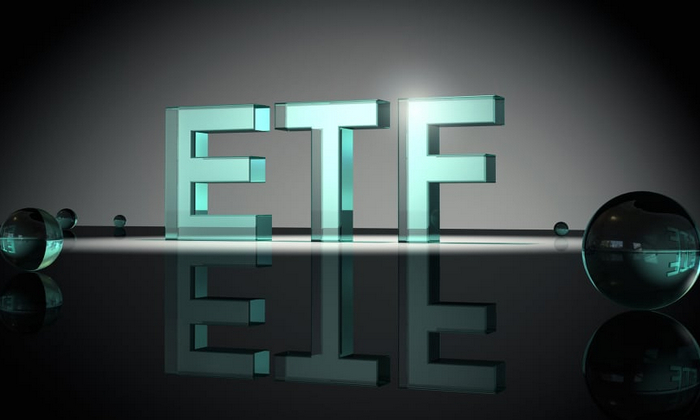-
 Bitcoin
Bitcoin $83,503.9101
-0.87% -
 Ethereum
Ethereum $1,833.5962
-1.23% -
 Tether USDt
Tether USDt $0.9999
-0.01% -
 XRP
XRP $2.0696
-0.69% -
 BNB
BNB $608.6354
1.87% -
 Solana
Solana $119.8327
-3.38% -
 USDC
USDC $1.0000
0.00% -
 Dogecoin
Dogecoin $0.1667
-1.42% -
 Cardano
Cardano $0.6533
-2.10% -
 TRON
TRON $0.2370
-0.07% -
 Toncoin
Toncoin $3.7949
-5.16% -
 UNUS SED LEO
UNUS SED LEO $9.4071
0.16% -
 Chainlink
Chainlink $13.1787
-2.55% -
 Stellar
Stellar $0.2635
-0.98% -
 Avalanche
Avalanche $18.8166
-0.69% -
 Sui
Sui $2.3934
2.75% -
 Shiba Inu
Shiba Inu $0.0...01237
1.53% -
 Hedera
Hedera $0.1648
0.25% -
 Litecoin
Litecoin $83.7556
2.38% -
 Polkadot
Polkadot $4.0432
-0.51% -
 MANTRA
MANTRA $6.3564
3.55% -
 Bitcoin Cash
Bitcoin Cash $304.2808
0.31% -
 Bitget Token
Bitget Token $4.5551
-0.48% -
 Dai
Dai $1.0000
0.00% -
 Ethena USDe
Ethena USDe $0.9998
0.00% -
 Pi
Pi $0.6455
-6.50% -
 Hyperliquid
Hyperliquid $12.4911
-4.88% -
 Monero
Monero $217.0104
-0.33% -
 Uniswap
Uniswap $6.0277
-0.47% -
 Aptos
Aptos $5.2867
1.16%
what etf stands for
ETFs provide instant diversification, reducing risk by investing in a range of assets while offering low costs, transparency, and liquidity, making them a convenient and accessible investment option for all.
Oct 13, 2024 at 08:59 pm

Understanding ETFs: What They Are and How They Work
1. Definition
An ETF, or exchange-traded fund, is a type of investment fund that tracks the performance of a basket of assets, such as stocks, bonds, or commodities. ETFs are traded on stock exchanges, just like individual stocks.
2. Key Features
- Diversification: ETFs provide instant diversification by investing in a range of assets, reducing the risk of losses from any single holding.
- Low Costs: ETFs typically have lower expense ratios than actively managed mutual funds, making them a cost-effective investment option.
- Transparency: ETF holdings are transparent and updated regularly, allowing investors to easily monitor their investments.
- Liquidity: ETFs are highly liquid, meaning they can be bought and sold quickly and easily during market hours.
3. How ETFs Work
- Creating an ETF: An ETF is created by a fund manager who puts together a basket of assets.
- Issuing Shares: Shares in the ETF are then sold to investors on the stock exchange.
- Tracking the Index: The ETF's portfolio is designed to track the performance of a specific index or market segment.
- Rebalancing: The ETF manager periodically rebalances the portfolio to ensure it remains aligned with the index or market segment being tracked.
4. Types of ETFs
There are a wide variety of ETFs available, covering different asset classes, sectors, and geographic regions, including:
- Stock ETFs: Track the performance of stock indexes, such as the S&P 500 or Nasdaq Composite.
- Bond ETFs: Invest in a diversified portfolio of bonds, providing fixed income exposure.
- Commodity ETFs: Track the prices of commodities, such as gold, oil, or agricultural products.
- Sector ETFs: Focus on specific sectors of the economy, such as technology, healthcare, or financials.
- Target-Date ETFs: Automatically adjust their asset allocation based on an investor's expected retirement date.
5. Advantages of ETFs
- Convenience: ETFs offer the convenience of buying and selling a diversified portfolio in a single transaction.
- Accessibility: ETFs are generally available to all investors, including beginners.
- Tax Efficiency: Some ETFs, such as bond ETFs, are tax-efficient investments.
6. Disadvantages of ETFs
- Tracking Error: ETFs may not perfectly track the index or market segment they follow, leading to potential tracking error.
- Expense Ratio: While ETFs generally have low expense ratios, it's important to consider the specific costs associated with each ETF.
- Limited Control: Investors have limited control over the specific assets held in an ETF.
Disclaimer:info@kdj.com
The information provided is not trading advice. kdj.com does not assume any responsibility for any investments made based on the information provided in this article. Cryptocurrencies are highly volatile and it is highly recommended that you invest with caution after thorough research!
If you believe that the content used on this website infringes your copyright, please contact us immediately (info@kdj.com) and we will delete it promptly.
- Crypto Just Got a Wake-up Call.
- 2025-04-03 13:25:12
- BlockDAG (BDAG) Dominates the 2025 Cryptocurrency Market As Its Presale Surges Past $200M
- 2025-04-03 13:25:12
- Rexas Finance (RXS) Could Be the Next Cardano (ADA)
- 2025-04-03 13:20:12
- Bitcoin (BTC) Price Plunges as President Trump's New Tariffs Rock Crypto Assets
- 2025-04-03 13:20:12
- Mutuum Finance (MUTM) Is One of the Top Solid DeFi Ventures, Alongside Pepe (PEPE) and Ethereum (ETH)
- 2025-04-03 13:15:13
- Mutuum Finance (MUTM) Surpasses $6 Million in Funding, With More Than 7,700 Holders Taking Their Positions Early
- 2025-04-03 13:15:13
Related knowledge

What role does SEC play in Bitcoin ETF approval?
Feb 25,2025 at 06:48am
Key Points:SEC's Role in Bitcoin ETF Approval ProcessHistorical Efforts to Establish a Bitcoin ETFSEC's Criteria for Bitcoin ETF ApprovalPotential Impact of a Bitcoin ETF on the Cryptocurrency MarketTimeline and Outlook for Bitcoin ETF ApprovalArticle:SEC Play in Bitcoin ETF ApprovalThe United States Securities and Exchange Commission (SEC) plays a crit...

Who is eligible to issue Bitcoin ETFs?
Feb 25,2025 at 11:13am
Key Points:Only regulated financial institutions with the necessary expertise and infrastructure are eligible to issue Bitcoin ETFs.The Securities and Exchange Commission (SEC) has not yet approved any spot Bitcoin ETFs, but has approved several futures-based ETFs.Applicants must meet stringent requirements, including having a strong track record and su...

What impact does Bitcoin ETF have on the market?
Feb 25,2025 at 11:37am
Key Points:Introduction to Bitcoin ETFs and their role in the cryptocurrency marketHistorical development and performance of Bitcoin ETFsPotential benefits of Bitcoin ETFs for investors and the marketRisks and limitations associated with Bitcoin ETFsRegulatory considerations and their impact on Bitcoin ETFsArticle:Introduction to Bitcoin ETFsBitcoin exc...

Which investors are Bitcoin ETFs suitable for?
Feb 27,2025 at 04:01pm
Key Points:Understanding Bitcoin ETFsBenefits of Bitcoin ETFsSuitability of Bitcoin ETFs for Different InvestorsAssessing Risk Tolerance and Investment GoalsConsidering Short-Term and Long-Term StrategiesExamining Tax ImplicationsSeeking Professional AdviceUnderstanding Bitcoin ETFsBitcoin exchange-traded funds (ETFs) are investment vehicles that track ...

What is the administrative expenses of Bitcoin ETFs?
Feb 26,2025 at 12:24am
Key Points:Administrative expenses are a crucial factor to consider when evaluating Bitcoin ETFs.These expenses can significantly impact the performance of the fund and ultimately the investor's returns.Understanding the various components of administrative expenses is essential for informed decision-making.Comparing administrative expenses across diffe...

What are the fees for purchasing Bitcoin ETFs?
Feb 27,2025 at 07:13pm
Key Points:Bitcoin exchange-traded funds (ETFs) are a cost-effective and regulated way to gain exposure to Bitcoin.Fees associated with Bitcoin ETF purchases vary depending on the platform, trading volume, and account type.It is essential to evaluate fee structures carefully to optimize investment returns.Fees Associated with Purchasing Bitcoin ETFs1. B...

What role does SEC play in Bitcoin ETF approval?
Feb 25,2025 at 06:48am
Key Points:SEC's Role in Bitcoin ETF Approval ProcessHistorical Efforts to Establish a Bitcoin ETFSEC's Criteria for Bitcoin ETF ApprovalPotential Impact of a Bitcoin ETF on the Cryptocurrency MarketTimeline and Outlook for Bitcoin ETF ApprovalArticle:SEC Play in Bitcoin ETF ApprovalThe United States Securities and Exchange Commission (SEC) plays a crit...

Who is eligible to issue Bitcoin ETFs?
Feb 25,2025 at 11:13am
Key Points:Only regulated financial institutions with the necessary expertise and infrastructure are eligible to issue Bitcoin ETFs.The Securities and Exchange Commission (SEC) has not yet approved any spot Bitcoin ETFs, but has approved several futures-based ETFs.Applicants must meet stringent requirements, including having a strong track record and su...

What impact does Bitcoin ETF have on the market?
Feb 25,2025 at 11:37am
Key Points:Introduction to Bitcoin ETFs and their role in the cryptocurrency marketHistorical development and performance of Bitcoin ETFsPotential benefits of Bitcoin ETFs for investors and the marketRisks and limitations associated with Bitcoin ETFsRegulatory considerations and their impact on Bitcoin ETFsArticle:Introduction to Bitcoin ETFsBitcoin exc...

Which investors are Bitcoin ETFs suitable for?
Feb 27,2025 at 04:01pm
Key Points:Understanding Bitcoin ETFsBenefits of Bitcoin ETFsSuitability of Bitcoin ETFs for Different InvestorsAssessing Risk Tolerance and Investment GoalsConsidering Short-Term and Long-Term StrategiesExamining Tax ImplicationsSeeking Professional AdviceUnderstanding Bitcoin ETFsBitcoin exchange-traded funds (ETFs) are investment vehicles that track ...

What is the administrative expenses of Bitcoin ETFs?
Feb 26,2025 at 12:24am
Key Points:Administrative expenses are a crucial factor to consider when evaluating Bitcoin ETFs.These expenses can significantly impact the performance of the fund and ultimately the investor's returns.Understanding the various components of administrative expenses is essential for informed decision-making.Comparing administrative expenses across diffe...

What are the fees for purchasing Bitcoin ETFs?
Feb 27,2025 at 07:13pm
Key Points:Bitcoin exchange-traded funds (ETFs) are a cost-effective and regulated way to gain exposure to Bitcoin.Fees associated with Bitcoin ETF purchases vary depending on the platform, trading volume, and account type.It is essential to evaluate fee structures carefully to optimize investment returns.Fees Associated with Purchasing Bitcoin ETFs1. B...
See all articles























































































